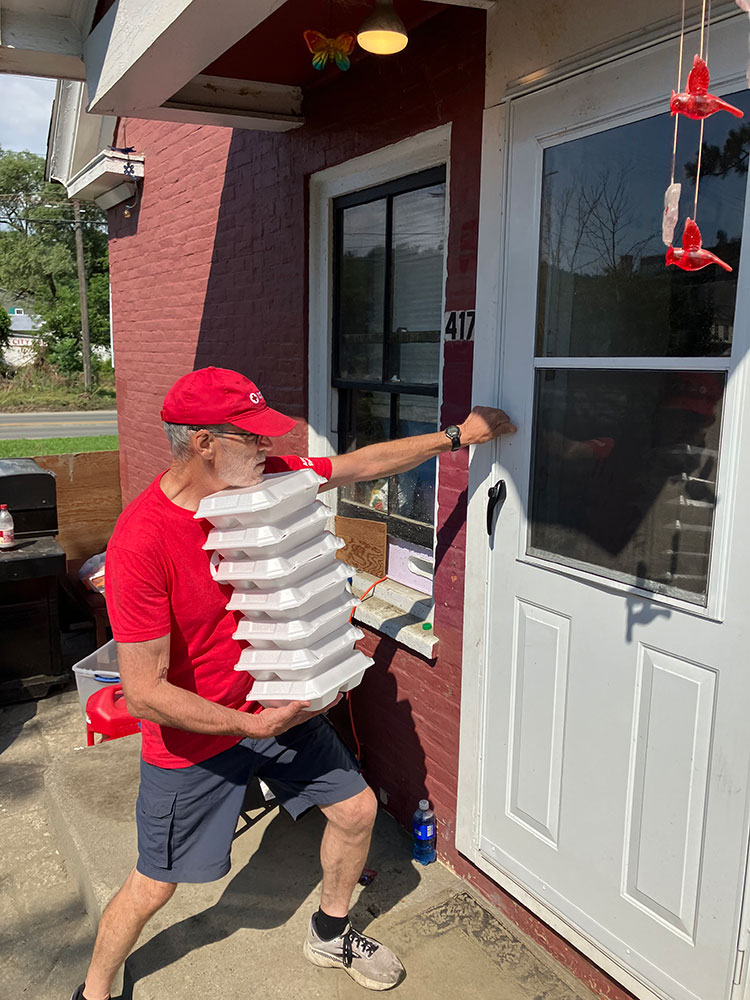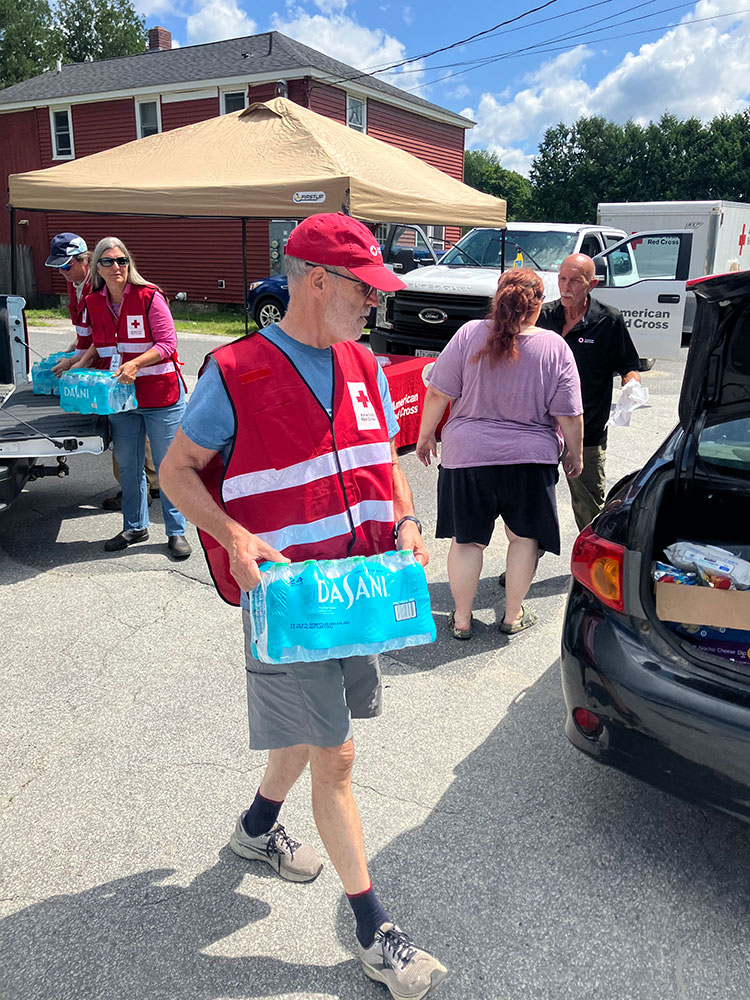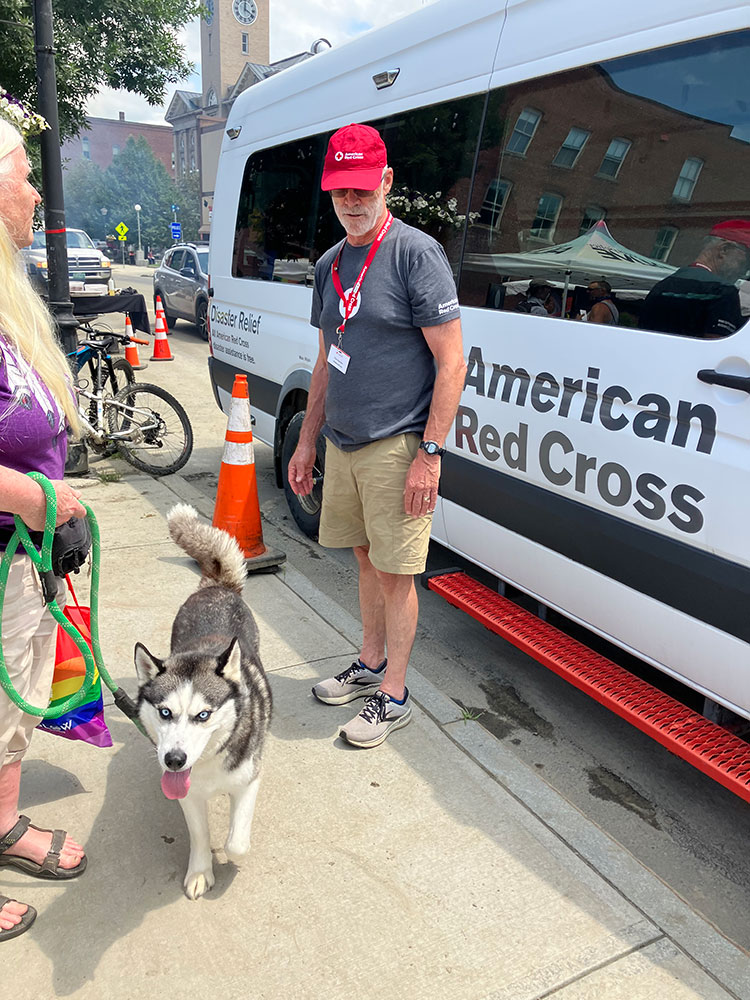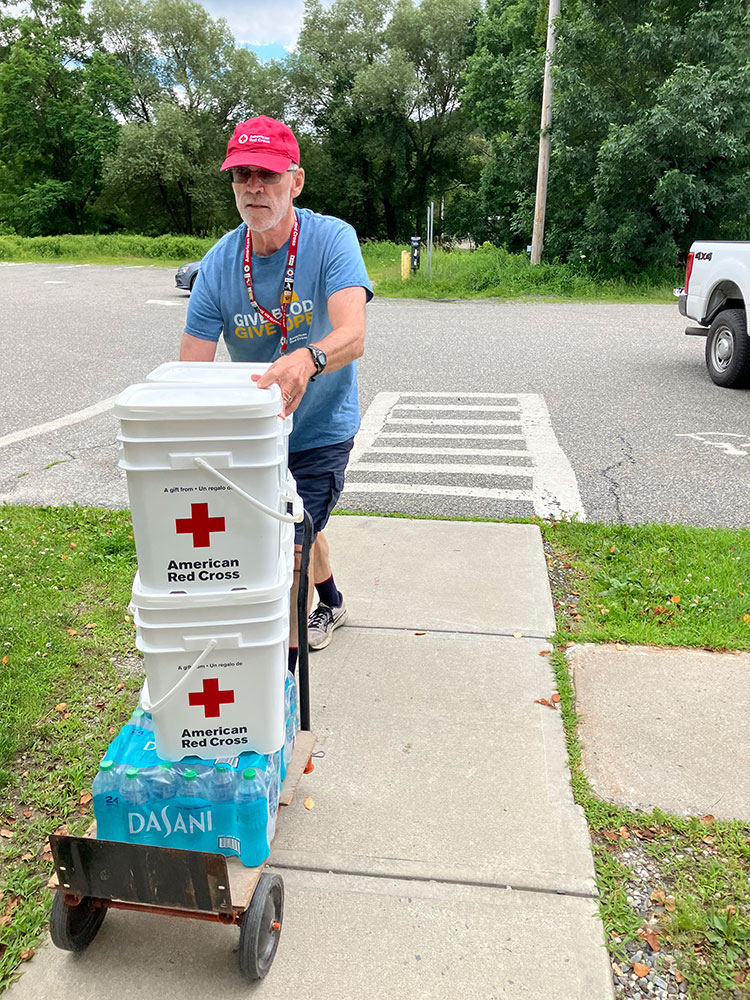
“It’s one thing to read about it or see a video newscast, but to experience it, along with the people who have been personally impacted by it, is altogether different.”
Red Cross volunteer Pete Basiliere described his time supporting survivors of the recent wildfires in California. After spending much of his life giving back to his community in Milford, New Hampshire, Pete decided to take advantage of his retirement and help people around the country through the American Red Cross.
While Pete primarily works as a Red Cross disaster relief volunteer locally near his home in New Hampshire, he has also deployed to the Carolinas after Hurricane Helene, Vermont after catastrophic flooding, and most recently, California where he helped with disaster relief after the Los Angeles area wildfires.
“The devastation was just so incredible,” Pete said, reflecting on the destruction that the wildfires left. “I’ve never seen fires like that before.”
During his California deployment, Pete helped distribute emergency supplies. He assisted the people who were queued up to go visit their homes to assess this damage. He says police organized groups of property owners along the Santa Monica pier to go up to their properties for the first time.
Pete and other volunteers provided water, snacks and emergency supplies those waiting to see their homes – items like gloves, coveralls and other kinds of supplies that could help property owners as they assessed what was left of their homes.
“Whole neighborhoods were just reduced to rubble,” Pete recalled. “The only thing standing really were brick fireplaces and steel structures. Everything else was just gone because they were devoid of all their plastics and rubber and other components, just a metal shell was left. It was incredibly moving. The photographs and videos don’t do it justice because when you’re there, the smell of all that is in the air, it’s nothing like I’d ever smelled from a wood fire before.”

Pete spent time with those in line to see their homes, which gave him the opportunity to talk with a large number of people affected by the California wildfires. Many say they had to evacuate with nothing but what they had in their cars when they left.
Pete recalled meeting an older couple who left their home earlier in the day for appointments in the city, out of the Palisades. Now they are only left with what they had brought with them to the doctor’s appointment.

While supporting FEMA, Pete met one family who was living in their friend’s home. The married couple, their child and their dog were staying in the living room. The wife said the family was trying to be “as small as possible.”
Through the tragedy, there still was hope.
“On the lighter side, there was one woman who said, ‘Well, I was planning to downsize anyway,’ and had a good spirit about it,” Pete remarked.
Pete has been on several deployments for the Red Cross over the past several years and seen many people displaced by disasters.
“When I was down in Mississippi on my very first appointment, just over two years ago, there were people that were still living in a motel room, ten weeks after the tornado swept through their town. I just cannot imagine what it must be like to live in a motel room with your family for ten weeks. It’s not a resort, far from it,” he said.
Volunteering with the Red Cross has opened Pete’s eyes to what happens during and after a disaster.
“I have a heightened awareness that when a disaster strikes, lives are impacted in ways that most of us have no idea. If I can help with that transition, along with my colleagues in the Red Cross to the next step in recovering, then I'm happy to be able to do that.” Today, the Red Cross is responding to twice as many major disasters as a decade ago, and the number of massive billion-dollar disasters has also increased 85% over the same period.
“Be prepared for a disaster in your own home or your own neighborhood,” Pete advised. “Every household should have a go bag, where if the house is on fire they can reach for it safely. I strongly recommend that people think about the unlikely, but unfortunate, event of a disaster in their own home and how they will respond in that moment.”
The Red Cross responds to about 65,000 disasters every year. Large disasters like hurricanes, floods and wildfires are becoming more frequent and intense as the climate crisis worsens. The Red Cross is always looking for more volunteers, like Pete, to respond to those in need after a disaster.

“There's an opportunity for anyone to volunteer in any way that really fits their skillset and their lifestyle and their interests. The opportunities are numerous, and all are very rewarding work,” said Pete.
Volunteers are the lifeblood of the Red Cross. 90% of our workforce are volunteers. Put on a red vest and join us. Visit redcross.org/volunteer to find out how you can support your community.
Support all the urgent humanitarian needs of the American Red Cross.
Find a drive and schedule a blood donation appointment today.
Your time and talent can make a real difference in people’s lives. Discover the role that's right for you and join us today!